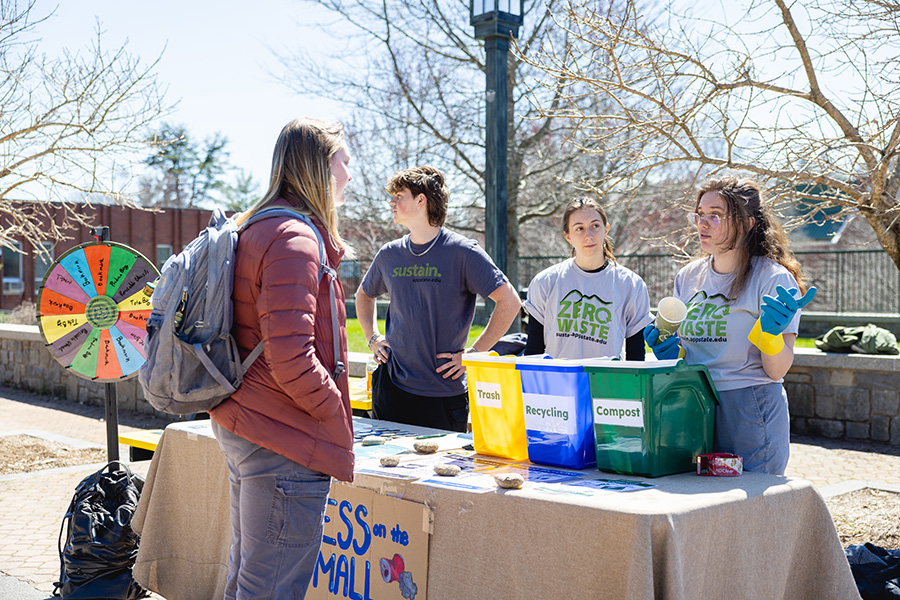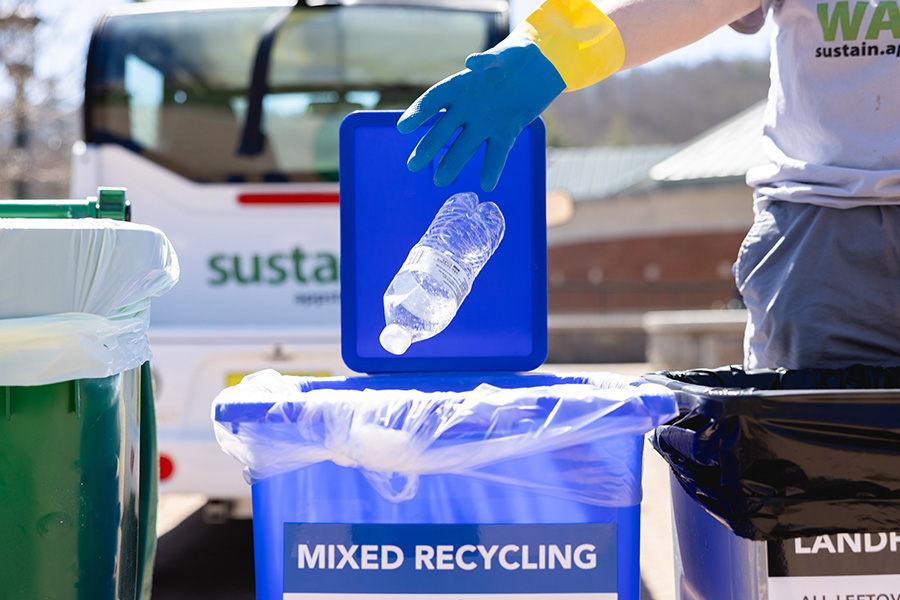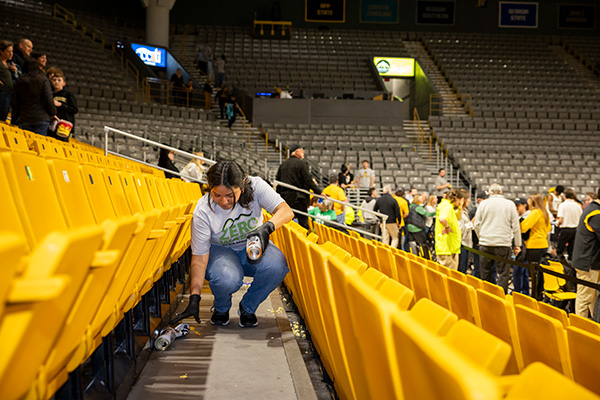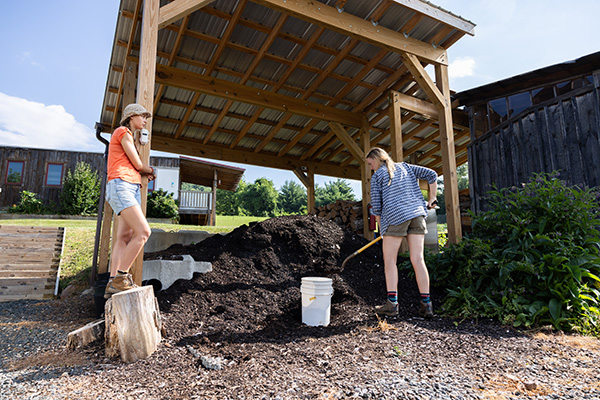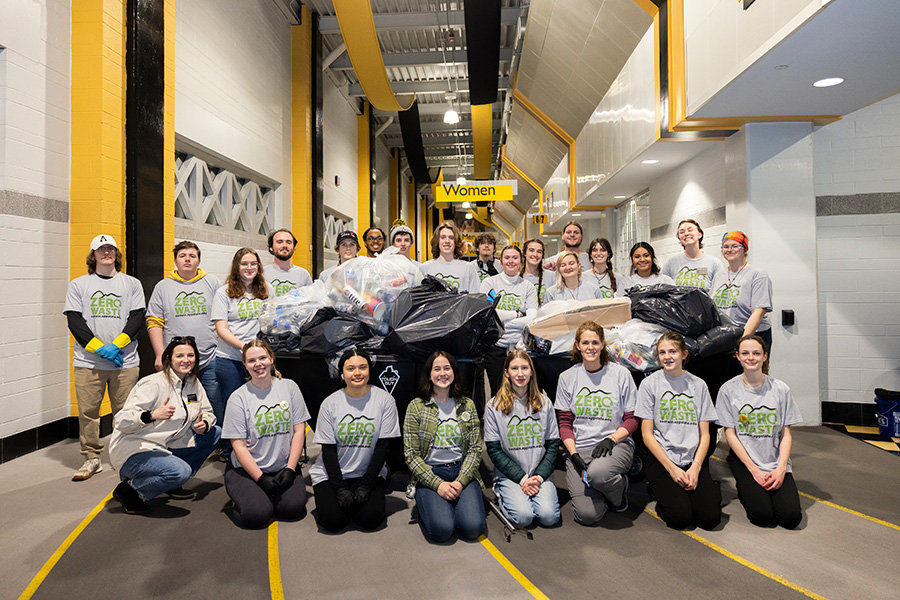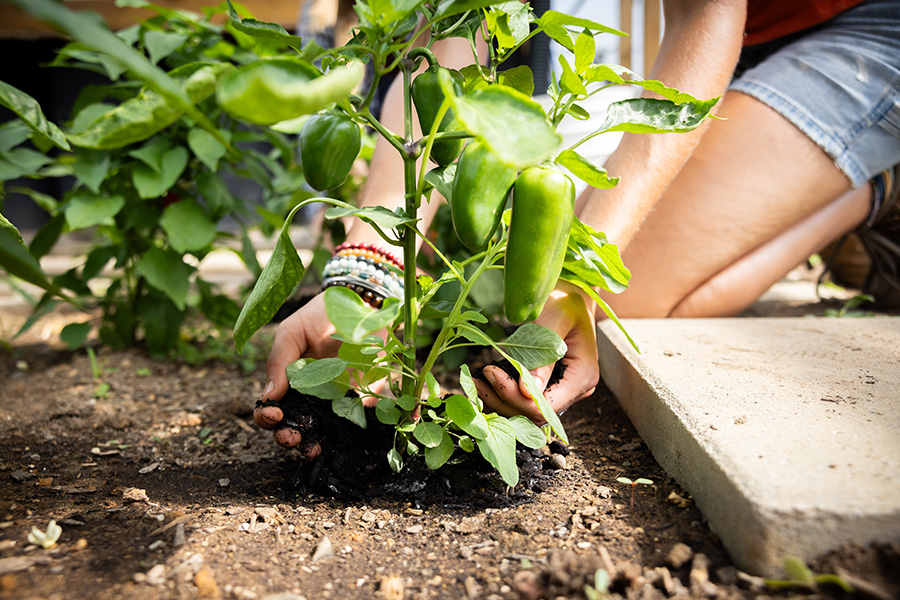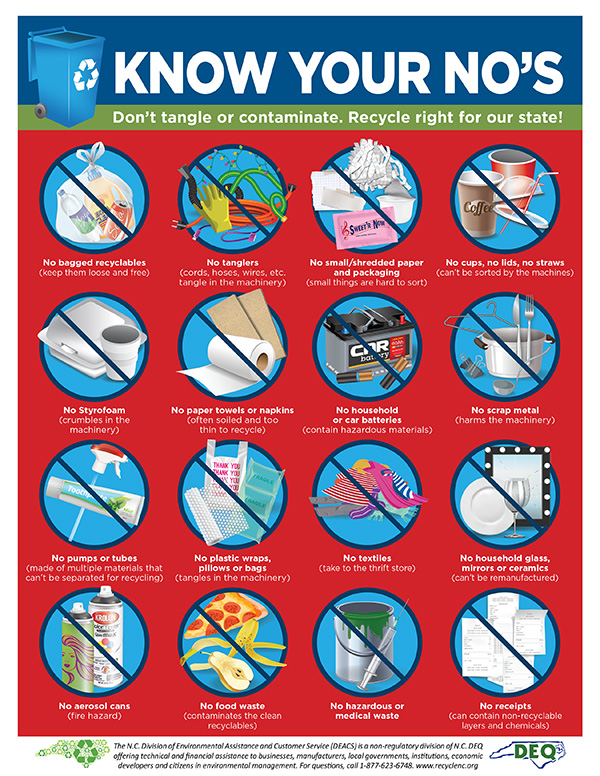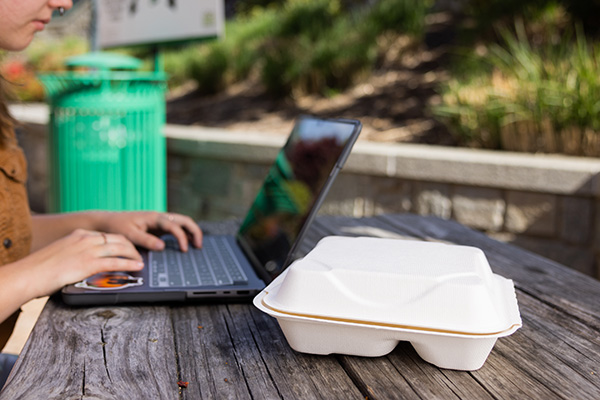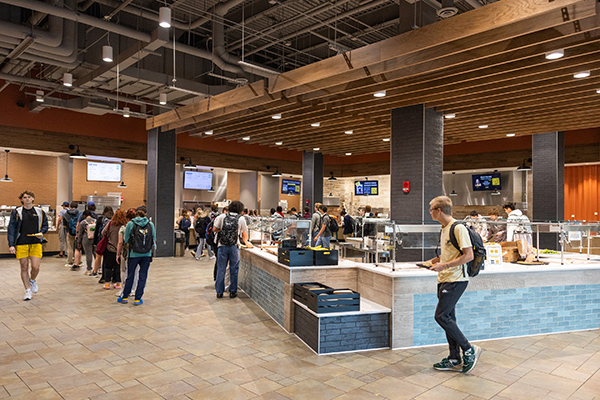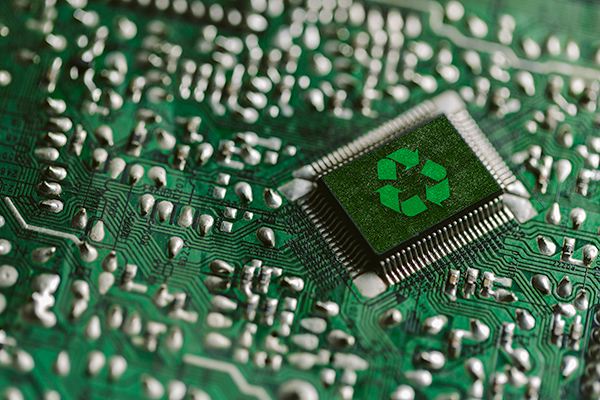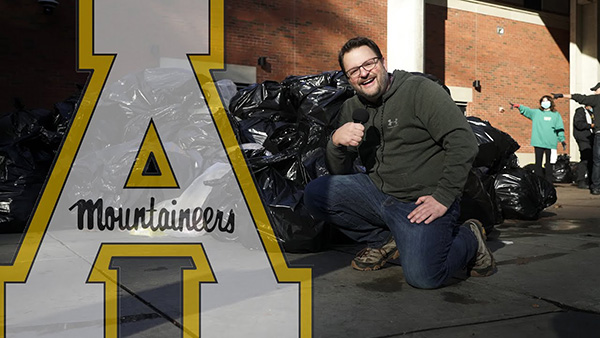BOONE, N.C. — Recycling is one of the most impactful ways for the campus community to contribute to sustainability efforts at Appalachian State University, according to the university’s Office of Sustainability. The office’s recycling guide is the best tool for students, faculty and staff to learn about what is recyclable, what is not recyclable and where to recycle on campus.
But where does App State’s recycling go?
The university contracts with Republic Services and material recovery facilities to distribute items that have been placed in recycle bins on both the Boone and Hickory campuses. All recyclables are sent to the Republic Services location in Conover, then the materials are sorted and distributed to be processed in a variety of ways throughout the region and beyond.
According to Republic Services’ Conover division, the end markets for recycled products from App State are as follows:
- Scrap metal — is taken to a scrap yard in Gastonia, where it’s separated and shredded. The metals are then sent to a smelter that melts them down to form sheets that can be used in a variety of products, including appliances, furniture and building materials.
- Plastic bottles — are separated by polymer grade and baled, then sent to mills in North Carolina, Alabama and Pennsylvania that grind, flake, melt and extrude the bottles to be made into a variety of products, including carpet, clothing and new plastic bottles.
- Aluminum cans — in the same process as plastic bottles, aluminum cans are sent to mills in Tennessee and various other locations on the East Coast to be melted and made into sheets that can be used in a variety of products, including car parts, baseball bats and new aluminum cans.
- Paper and cardboard — is distributed to facilities in South Carolina, Georgia, Virginia and various locations on the East Coast to be placed in a pulper, washed, dried and made into sheets that can be used in a variety of products, including office paper, tissues, toilet paper, napkins and paper towels.
- Glass — is sent to a processor in Georgia that cleans it, then crushes it into a clean product or cullet that can be melted down and used in a variety of products, including new glass bottles, jars and construction materials.
“We all generate waste, so we can all be a part of a better solution — and once you see the types of impacts that recycling makes, it is extremely rewarding,” said Jennifer Maxwell, App State’s sustainability program director.
Maxwell said that zero waste is always at the forefront of sustainability efforts at App State, and that composting — the natural process of converting organic materials such as decomposing plants or food waste into fertilizer — has similar impacts to recycling.
“Composting is actually our most desired stream, because it happens right here on campus and we can use the finished product,” said Maxwell.
For example, compost can be distributed to App State’s Landscaping Services for flower beds and tree plantings, and to the Boone campus gardens and Sustainable Development Farm and Gardens to amend the soil for vegetable planting.
The university has also implemented a Farm to Table to Compost initiative with Campus Dining, in which food grown at the Sustainable Development Farm and Gardens is prepared and served at campus dining halls, and leftovers are composted and sent back to the farm.
Other recent examples of App State’s recycling and composting impacts include:
- The Zero Waste Stadium initiative, in which volunteers sort through waste at home football games. During the 2023 season, nearly 30,000 pounds of material was diverted from the landfill through recycling and composting efforts. This initiative has also recently expanded to some home basketball and baseball games. WATCH: UComm's Dave Blanks catches up with Zero Waste Initiative volunteers as they sort trash after an App State football game day.
- Campus Dining’s ReusePass program, which allows diners to check out and return reusable to-go containers. In the last academic year, the program saved over 2,600 pounds of greenhouse gas emissions, over 2,500 gallons of water, over 300 pounds of waste and over 4,000 single use containers.
- About 250 tons of food waste was composted on campus in the last academic year, which in turn cut carbon emissions by about 500 tons.
“I encourage the App State Community to take advantage of these types of opportunities,” said App State Office of Sustainability zero waste intern Nicole Sommerdorf ’23, who holds a bachelor’s degree in environmental science. “Participating in the zero waste football games was one of the best moments for me. The amount of waste we sorted through was insane, and to know that it probably would have all gone to the landfill without our efforts is a pretty special feeling.”
The Office of Sustainability continually strives to make properly disposing of waste as easy as possible on campus. All of App State’s waste bins are labeled and color coded — blue for recycling, black or gray for landfill and green for compost — and everything is located at centralized sites so that people can dispose of all types of waste in one swoop.
App State offers special recycling services in Plemmons Student Union and the Office of Sustainability in East Hall for plastic film recycling, which includes the following items:
- Plastic grocery bags.
- Plastic wraps.
- Shrink wrap.
- Plastic packaging.
- Bubble wrap.
The student union, as well as Information Technology Support Services in Anne Belk Hall, also offers special recycling services for technology equipment, which includes the following items:
- Computer equipment.
- CDs and DVDs.
- Cell phones and technology accessories.
- Batteries.
- Printer cartridges.
- Compact fluorescent bulbs.
“It’s so important for App State to be messengers and to teach the community that recycling and composting take us back to our roots of being stewards of the environment,” said Lanie Karstrom, App State’s Office of Sustainability outreach director. “When attention is given to it and people work together, recycling can make a real difference.”
Maxwell added that all of App State’s sustainability efforts, including sustainable purchasing, contribute to a circular economy — where materials, products and services are kept in circulation for as long as possible, rather than discarded, with an aim to mitigate waste.
For more information or questions about how to recycle, contact App State’s Office of Sustainability at 828-262-2659 or [email protected]. For more information about App State’s other sustainability efforts and how to get involved, visit sustain.appstate.edu.
What do you think?
Share your feedback on this story.
Equipment is refurbished and distributed to low-income families across NC
About Sustainability and Energy Management at App State
Appalachian State University’s leadership in sustainability is known nationally. The university’s holistic, three-branched approach considers sustainability economically, environmentally and equitably in relationship to the planet’s co-inhabitants. The university is an active steward of the state’s interconnected financial, cultural and natural resources and challenges students and others think critically and creatively about sustainability and what it means from the smallest individual action to the most broad-based applications. The university offers both undergraduate and graduate academic degree programs that focus on sustainability. In addition, 100 percent of Appalachian’s academic departments offer at least one sustainability course or course that includes sustainability, and all students graduate from programs that have adopted at least one sustainability learning outcome. Learn more at https://appstate.edu/sustainability.
About Appalachian State University
As a premier public institution, Appalachian State University prepares students to lead purposeful lives. App State is one of 17 campuses in the University of North Carolina System, with a national reputation for innovative teaching and opening access to a high-quality, cost-effective education. The university enrolls more than 21,000 students, has a low student-to-faculty ratio and offers more than 150 undergraduate and 80 graduate majors at its Boone and Hickory campuses and through App State Online. Learn more at https://www.appstate.edu.
